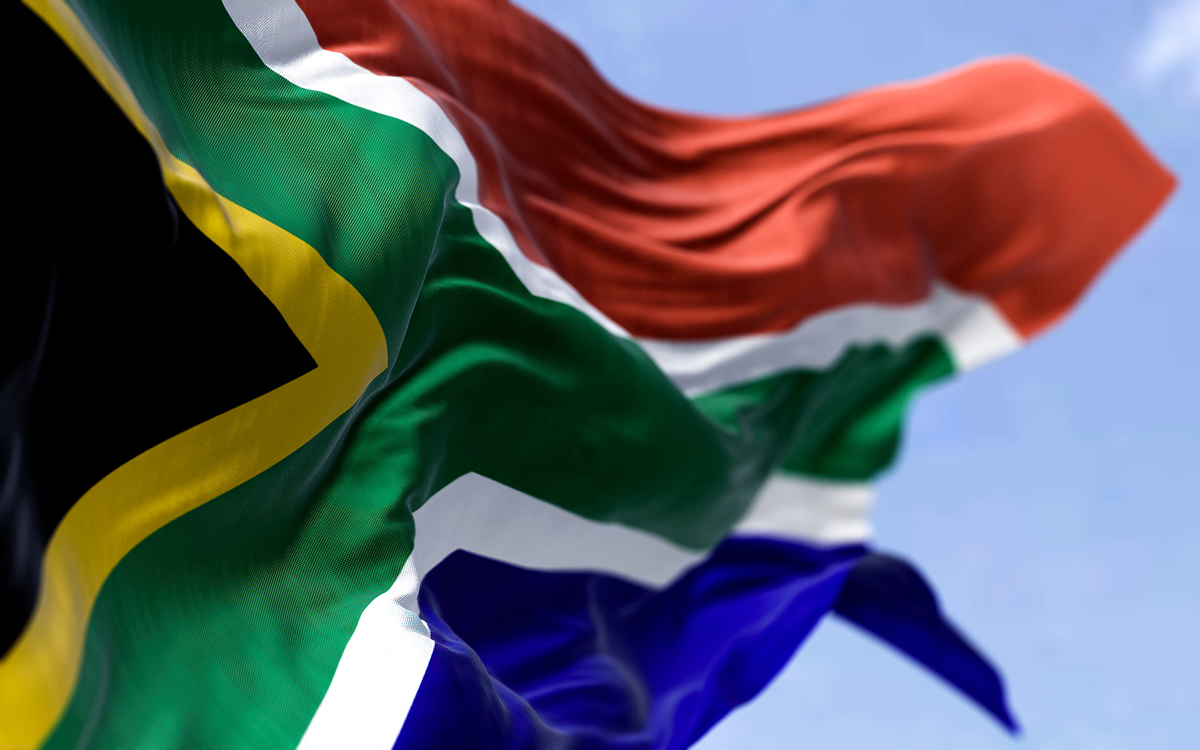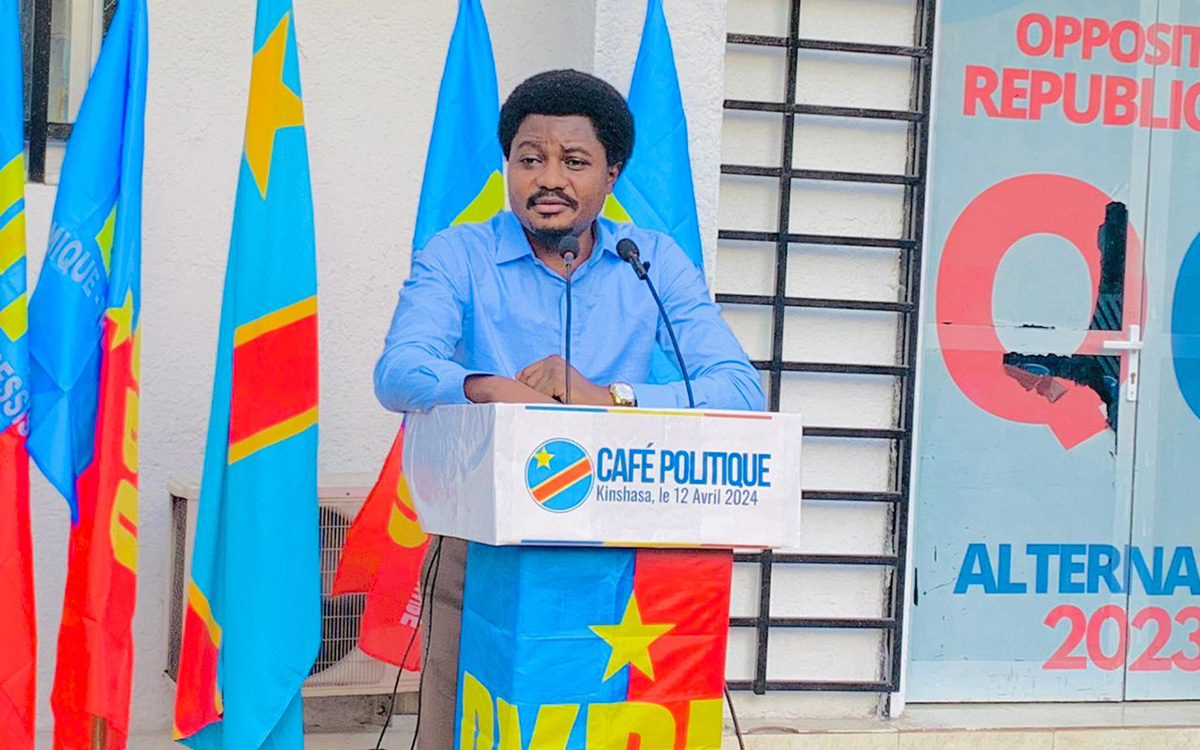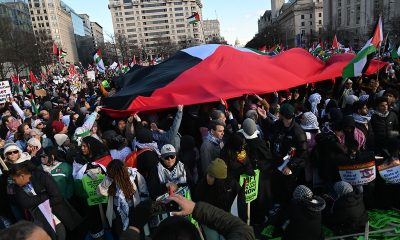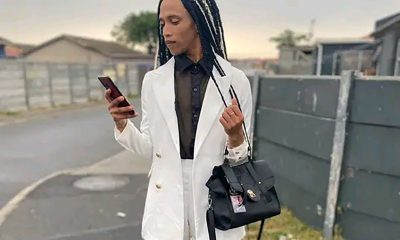Africa
South Africa Islamic group issues edict that condemns homosexuality
A group of queer Muslims criticized fatwa in open letter

A group of queer Muslims in South Africa have rejected the South African Muslim Judicial Council’s new edict that condemns homosexuality as sinful and unIslamic.
The fatwa the the South African Muslim Judicial Council issued earlier this month says any Muslims who are in same-sex relationships or engage in same-sex sexual relations will have taken themselves out of the Islamic faith. The South African Muslim Judicial Council has also called for excommunication or “takfir,” with the punishment being death for any Muslim found to be a member of the LGBTQ community.
“As queer Muslim South Africans and allies we resist the fatwa unequivocally. The MJC is a self-appointed, unelected and entirely male body, save for the head of their Women’s Forum, that does not represent the Muslim community on any democratic basis,” reads a letter that 20 queer South African Muslims signed. “We remind the MJC that Section 9 of the Constitution forbids discrimination on the basis of sex, gender or sexual orientation, and applies to government and private parties. Section 15 provides for the recognition of religious legal systems and marriages that are not inconsistent with the Constitution. The rights of 2SLGBTQIA+ people under the South African constitution cannot be trumped by cultural or religious authority, especially the right to life.”
“The MJC’s fatwa amounts to hate in a context where the lives of 2SLGBTQIA+ people are already in danger. The fatwa is based on ignorance and reinforces oppression and injustice rather than supporting just, fair and equal rulings,” adds the letter. “Moreso, the MJC and associated bodies, such as the Jamiatul Ulama South Africa, have published other articles and statements which incite hate against 2SLGBTQIA+ persons. “
The letter further notes that “2SLGBTQIA+ persons in South Africa are clearly protected by the Constitution and other laws. It is possible to be 2SLGBTQIA+ and Muslim.”
As 2SLGBTQIA+ Muslims we live this combination daily. Our Islam is based on solidarity, critical love, care and kindness. For us, faith is about pursuing justice, fairness and equality. A discriminatory statement by the MJC does not and cannot invalidate our existence, or our right to life,” reads the letter. “All people deserve to enjoy a life free from oppression and discrimination. Together we can dismantle oppressive institutions and build safe, affirming and kind spaces for 2SLGBTQIA+ Muslims and all persons.”
The United Ulama Council of South Africa has since defended the MJC, citing that any demands for change in Quranic precepts go against the constitutionally-protected freedoms of beliefs and conscience.
“The Noble Quran recounts the story of the city of Sodom several times, condemning its inhabitants’ immorality and specifically criticizing its men for going to men out of desire instead of women. The Islamic position on same-sex relationships is clear and unambiguous as articulated by the MJC edict. The Islamic perspective is also consistent with Judaic and Biblical perspectives as stipulated in the relevant sacred scriptures,” said United Ulama Council of South Africa Secretary General MI Yusuf Patel.
“Moreover, the 2SLGBTQIA+ Muslims (queer Muslim South Africans) mischievously attempt to equate opposition to same-sex relationships with hate speech by stating that the MJC’s fatwa amounts to hate in a context where the lives of 2SLGBTQIA+ people are already in danger,” he added. “It surreptitiously attempts to augment its hate narrative by introducing its own presumption that if members of the 2SLGBTQIA+ are excommunicated from the Muslim community, the punishment for being excommunicated is death. This scare tactic is designed to equate repudiation of same sex relationships with hate incitement to cause harm. The clamorous and increasingly aggressive 2SLGBTQIA+ public discourse attempts to mute any voice of dissent and has become increasingly intolerant of those that are critical of same-sex relationships, as evidenced by both the responses to the MJC edict (fatwa).”
The MJC urged the Muslim community to display good conduct when dealing with non-Muslims belonging to the LGBTQ community, citing Islam teaches to hate the sin, not the sinner.
Daniel Itai is the Washington Blade’s Africa Correspondent.
Africa
Ugandan activists appeal ruling that upheld Anti-Homosexuality Act
Country’s Constitutional Court refused to ‘nullify’ law

Twenty-two LGBTQ activists in Uganda have appealed this month’s ruling that upheld the country’s Anti-Homosexuality Act.
The Constitutional Court on April 3 refused to “nullify the Anti-Homosexuality Act in its totality.”
President Yoweri Museveni last May signed the law, which contains a death penalty provision for “aggravated homosexuality.”
The U.S. subsequently imposed visa restrictions on Ugandan officials and removed the country from a program that allows sub-Saharan African countries to trade duty-free with the U.S. The World Bank Group also announced the suspension of new loans to Uganda.
Media reports indicate Sexual Minorities Uganda Executive Director Frank Mugisha and Jacqueline Kasha Nabagesara are among the activists who filed the appeal.
Africa
Congolese lawmaker introduces anti-homosexuality bill
Constant Mutamba’s measure seen as distraction from country’s problems

A member of the Democratic Republic of Congo’s National Assembly who is a leader of the country’s opposition party has introduced a bill that would criminalize LGBTQ people.
Part of the bill that Constant Mutamba, leader of the Dynamic Progressive Revolutionary Opposition platform, has put forth states anyone who “commits a homosexual act (including acts and gestures) will be liable to a 5- or 10-year prison sentence.”
The country in recent years has seen government leaders and civic society target the community with anti-LGBTQ sentiments.
The Superior Council for Audiovisual and Communication, Media Regulatory Authority last June cautioned the media against showing LGBTQ-specific conversations. Several activists have criticized Mutamba’s bill, saying it seeks to move attention away from governance, service delivery and other pertinent issues in the country.
Sirius Tekasala, a human rights activist, said a person’s sexual orientation does not impact issues of governance.
“The proposed bill does not go in the direction of improving the socio-economic life of the Congolese people,” said Tekasala. “It’s not homosexuals who prevent you from doing your job well or from breathing. This is a violation of human rights.”
Mbuela Mbadu Dieudonné, a social analyst and trade unionist, said the bill is just a way of deviating people from the pertinent issues.
“He should suggest how to get the Congolese people out of this precariousness of life which is growing on a daily basis,” said Dieudonné. “When we don’t know the real problems of the Congolese people, he sets himself up as the great director of scenes to distract the Congolese people.”
Many Congolese, however, seem to support the bill and have applauded Mutamba for drafting it.
This is not the first time that such kind of a bill has been drafted.
An anti-homosexuality bill introduced in 2010 would have sentenced people who engage in consensual same-sex sexual relations to between three and five years in prison. The measure, however, did not become law.
Mutamba’s bill, however, may pass with Uganda’s Anti-Homosexuality Act in effect. The country’s Constitutional Court earlier this month upheld it. Burundi, Tanzania and other neighboring countries are also considering similar measures.
Many Congolese people view LGBTQ rights as a Western phenomenon that disregards their religious and cultural beliefs. LGBTQ Congolese are among those who have fled the country and sought refuge in the Kakuma refugee camp in Kenya and other places.
Consensual same-sex sexual relations are not criminalized in the Democratic Republic of Congo, but Congolese law does not recognize same-sex marriages.
Africa
Prominent transgender woman in Nigeria arrested, charged with defacing currency
Authorities say Idris Okuneye, known as Bobrisky, flaunted money

Nigeria’s Economic and Financial Crimes Commission’s decision to arrest a well-known transgender woman over the practice of flaunting money has sparked questions among several human rights activists.
Idris Okuneye, who is known as Bobrisky, was first arrested last Wednesday.
Justice Abimbola Awogboro of the Lagos Federal High Court on April 5 charged her with four counts of mutilating N490,000 (roughly $375.)
The EFCC alleges Bobrinsky between last July and August flaunted N50,000 (roughly $36) during a social event and N400,000 ($306) at another gathering last month. Bobrinsky has been charged with violating section 21(1) of the Central Bank Act of 2007.
“The Lagos Zonal EFCC, on Friday, April 5, 2024, secured the conviction of Idris Okuneye, (Bobrisky), before Justice Abimbola Awogboro sitting at the Federal High Court, Ikoyi, Lagos over mutilation of the Naira notes,” reads the EFCC complaint that misgenders Bobrisky. “He was arraigned on Friday on a four-count charge bordering on mutilation of the Naira notes to the tune of N490,000.”
“Justice Awogboro, thereafter, ruled, that upon the admission of guilt by the defendant, and following the evidence tendered, the defendant is declared guilty as charged,” adds the statement.
The EFCC said after listening to both parties, Awogboro delayed his ruling and also ordered that Bobrisky remain in EFCC custody. Activist Felix Abayomi said the EFCC was simply using Bobrisky as a scapegoat due to the fact that she is a vulnerable member of the society.
“Discrimination in the name of implementing a pick and choose law! Why go after someone that is a vulnerable member of our society? Someone that is clearly dealing and coping with stigmatization of her lifestyle choices which is innate. Using her as a scapegoat is uncalled for,” said Abayomi. “How does spraying the Naira that is cultural to us as a people ever even become a financial crime? People who commit economic and financial crimes against us as a people and against our nation state are sitting comfortably in the hollows of our legislative chambers and power.”
Chidi Odinkalu, the former chair of the National Human Rights Commission, said the arrest was not about the mutilation of the Naira notes, but about Bobrisky’s gender identity.
“The EFCC should be ashamed of themselves,” said Odinkalu. “The power of arrest and prosecution is a public trust that should not be weaponized for the persecution of those whom they don’t like. It is either the EFCC is evidently idle or this is a clear abuse of power.”
EFCC spokesperson Dele Oyewale said Odinkalu’s statements were reckless.
“The commission views such commentaries from Odinkalu as unbecoming of a former head of a major government agency,” said Oyewale. “Okuneye was arrested and arraigned by the commission on the basis of clear cases of abuse of the Naira to which he has pleaded guilty.”
“Odinkalu has a right to free speech as a Nigerian, but such a right should be exercised with decorum and responsibility,” added Oyewale. “The commission would not hesitate to take appropriate legal actions against such uncouth commentaries against its lawful mandate by anyone. Odinkalu is warned and advised to ventilate his rascally opinions more responsibly in future situations.”
Bobrisky is one of the few individuals on the African continent who has publicly discussed their gender transition.
Ever since she started to publicly show her transition, several Nigerian political pundits have been calling for her arrest. There are no laws that specifically target trans Nigerians, but the Same-Sex Marriage Act criminalizes same-sex marriages and prohibits the public display of same-sex relationships with up to 14 years in prison.
In states where Sharia law is practiced, those found engaging in same-sex sexual activities can be sentenced to death by stoning. Even those who identify as trans can receive 50 lashes or more.
Update: Awogboro on Friday sentenced Bobrisky to six months in prison without the option of paying a fine. Reports indicate authorities will send her to a men’s prison.
-

 Africa4 days ago
Africa4 days agoCongolese lawmaker introduces anti-homosexuality bill
-

 District of Columbia14 hours ago
District of Columbia14 hours agoReenactment of first gay rights picket at White House draws interest of tourists
-

 World4 days ago
World4 days agoOut in the World: LGBTQ news from Europe and Asia
-

 Arizona19 hours ago
Arizona19 hours agoAriz. governor vetoes anti-transgender, Ten Commandments bill












